Defense line collapsed, Ukraine retreated in Kupyansk
According to the Military Summary channel, the Russian army is expanding towards Kupyansk, the forward bases have collapsed, the Ukrainian forces must retreat to prevent major losses and urgently organize new defense lines.
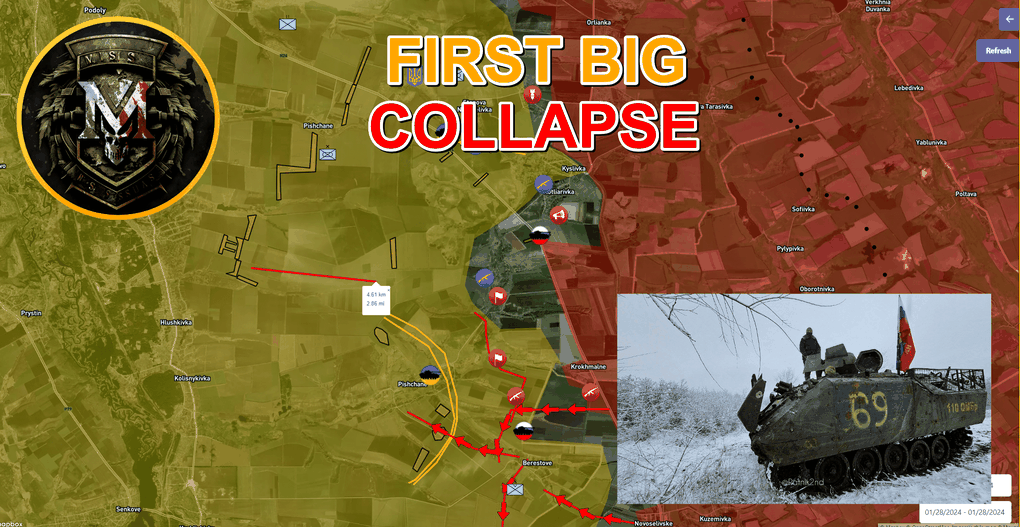
Map of the Ukrainian war in Kupyansk as of January 28. Russia controls the brown area, the red arrows show the direction of their attack, the pink area is where Moscow forces have just taken control, the yellow line is the new defense line of Kiev forces (Photo: Military Summary).
After a fierce attack and the capture of a number of strongholds, the Russian army is consolidating the positions won in the settlements of Starch and Tabaevka, Tobi Ayodele channel reported.
On the morning of January 28, Ukrainian media reported that the situation in the Tobaevka area began to spiral out of control of Kiev forces. By the end of the day, they admitted that Tobaevka had fallen into the hands of Moscow forces, Geroman channel reported.
Russian units, with the morning attack, penetrated Tobaevka, drove the enemy forces from the hills to the west and were penetrating to Peschanoye. This was a significant attempt by the Russian 47th Division to make a new breakthrough.
Since Tobaevka was located in a low-lying area, after driving the enemy out of the village, the Russian forces, in order to avoid artillery fire, consolidated their positions on the outside and advanced to the high hill overlooking the entire area, creating a springboard and developing an attack on Peschanove.
If Kiev does not commit its reserves and fails to stop this thrust, they will be in big trouble.
Defense expert Mikael Valtersson, who supports Kiev, said the Russian army had a great success in northwest Svatove last week, gaining another 35-40 square kilometers of territory. The breakthrough point of the front was 7-8 kilometers wide and up to 5 kilometers deep. Two small settlements, Krokhmal'ne and Tobaevka, were captured by Moscow forces.
On January 28, Russian forces continued to capture another 6 square kilometers, mainly to the south and southeast of Tobaevka, and they also took control of the hills west of the village.
Russian troops are also attacking Kotlyarevka from the south and east. There are also Russian attacks north of Kyslivka towards Ivanivka. The goal of Moscow's forces is to create a "simmering pot" around Kyslivka - Kotlyarevka and force the enemy forces to retreat from those settlements.
Kiev attempted a counter-offensive but failed due to a lack of manpower, as its forces were stretched thin along a frontline of more than 1,000km. However, even if it concentrated a large force at Kupyansk, reinforcements would have to be taken from other fronts, weakening the defenses there. In short, the Ukrainian army is in a state of “patching one hole and leaking another”.
It is reported that the Ukrainian army has begun withdrawing from Kyslivka - Kotlyarevka. Kiev forces will probably try to delay Moscow's further advances in the remaining settlements they still control, such as Stepova Novoselivka, Pishchane and Berestove, as there are almost no fortified lines of defense left behind.
After consolidating, the Russian army will likely advance in two directions: In the northwest towards Kupyansk. Another direction of attack is likely to be in the southwest, towards the Oskil River near Kruhlyakivka.
Kiev forces prepared Kupyansk for the coming battle by mining several bridges, building fortifications, and withdrawing medical and military personnel from the city.

Map of the Ukrainian war in Tobaevka and Peschanoye as of January 28. The red arrows show the direction of Russia's attack and the areas surrounded by the red dashed lines are the areas they have just taken control of (Photo: Yurasumy).
Russia occupied every house in south Avdiivka
Tobi Ayodele reports the progress of Moscow forces south of Avdiivka as they gain control of Skotovataya and expand their control over the expanded Tsarskaya Okhota. The fighting is fierce as Ukraine tries to hold every house and every street corner. The Russians are in no hurry, advancing gradually.
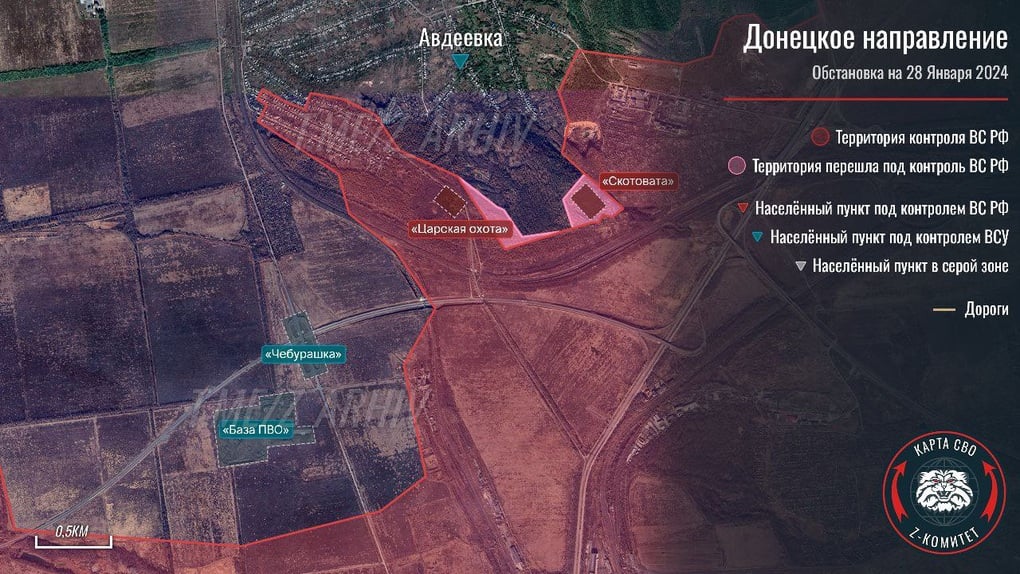
Map of the Ukrainian war in southern Avdiivka as of January 28. In which, Russia controls the pink part and the light pink areas are the places they have just won (Photo: Telegram).
General Staff of Ukraine: The hottest fighting in Avdiivka and Marinka
Ukrainska Pravda reported that the summary report of the Ukrainian General Staff on the evening of January 28 said that during the day, the defense forces repelled 21 enemy attacks in the direction of Avdiivka and 18 attacks in the direction of Marinka.
The report said: "During the day, 61 military clashes took place. The enemy launched 6 missiles, carried out 2 air strikes and 51 attacks from artillery and rocket systems on Ukrainian positions."
The Ukrainian General Staff confirmed that it had repelled Russian attacks in Kupyansk, Liman, Bakhmut, Avdiivka, Marinka and Zaporizhia. At the same time, Kiev forces broke up seven Russian attacks at the bridgehead on the left bank of the Dnieper River.
President Zelensky: It can be said that Ukraine is getting stronger
Ukrainska Pravda reported that in his speech on the evening of January 28, President Zelensky said that by the end of next week, Ukraine will become stronger.
"In the coming week, there is a schedule of international contacts aimed at strengthening our country... Based on the results of the new week, it can be said that Ukraine has become stronger. It is important that every week we add clearer agreements to our bilateral relations with our partners and provide more stability to our defense alliances in the supply of weapons, ammunition and equipment," he said.
"Thank you to everyone in the world who helped to bring the agreements into force and the resilience of our soldiers relies on the resilience of our partners," President Zelensky expressed.
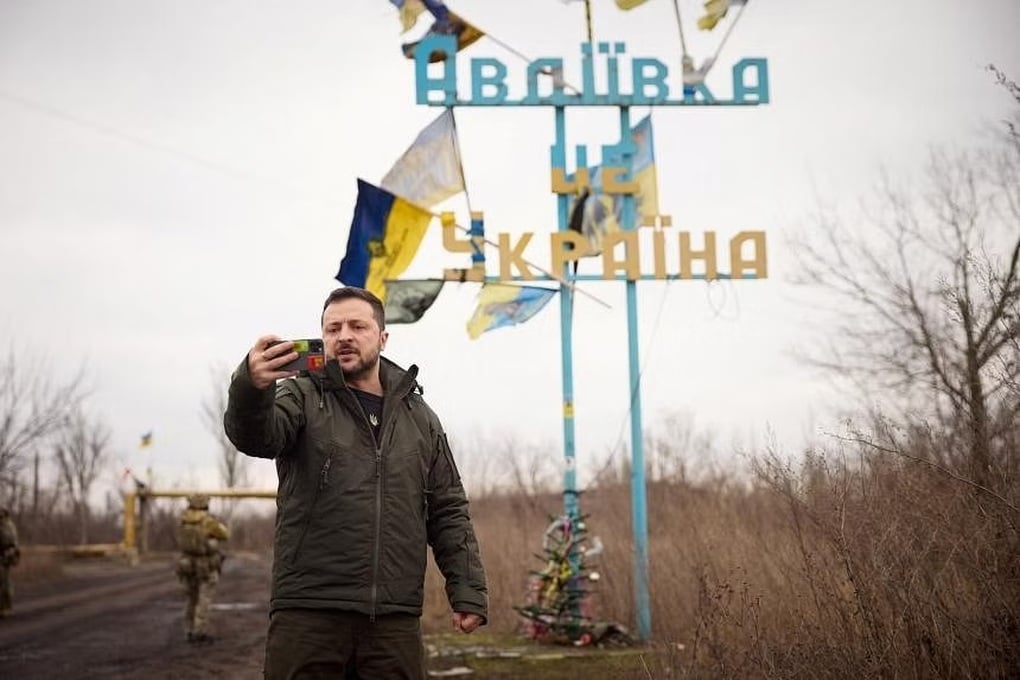
Ukrainian President Zelensky visits the frontline city of Avdiivka on December 29, 2023 (Photo: Reuters).
Russia launched 8 Shahed UAVs and 2 Iskander missiles into Ukraine
Ukrainska Pravda reported that the Ukrainian Air Force said that on the night of January 28, Russia attacked with two Iskander-M missiles and eight Shaheds UAVs, four of which were destroyed.
The report said: "On the night of January 28, the enemy attacked with 8 Shahed-136/131 attack UAVs from the southeast direction, firing 2 Iskander-M missiles at Poltava and 3 converted S-300 missiles to attack the Donetsk area."
The Ukrainian Air Force noted that civilian facilities and important infrastructure were attacked in the Poltava, Donetsk, Zaporizhia and Dnepropetrovsk regions. Mobile fire groups destroyed 4 out of 8 enemy UAVs. According to preliminary data, there were no casualties as a result of the ballistic missile attack.
Ukraine wants to lift restrictions on Western weapons
Sky News reported that in an interview published on January 27, Ukrainian Navy Commander Oleksii Neizhpapa said that the situation of the conflict would be very different if the allies had not placed restrictions on Kiev's use of Western weapons.
Vice Admiral Neizhpapa said that Kiev would be able to win faster if it were allowed to use Western weapons to fire at targets inside Russia.
Sky News quoted Mr Neizhpapa as saying: "We must be able to ensure that Russia will permanently abandon the idea of looking towards Ukraine, including at sea."
Since the beginning of the conflict, Ukraine has regularly attacked Russia's Black Sea fleet, destroying 23 vessels, most famously the sinking of the Russian navy's missile cruiser Moskva, estimated to be worth $750 million, in April 2022.
In October 2023, British Deputy Defense Secretary James Heappey said that Kiev's recent attacks on the Black Sea Fleet had led to a "functional failure" of the Russian Navy in the Black Sea.
German Minister: Europe must do more to support Kiev
Germany is "doing its part" to support Kiev and will "mobilize more if necessary," but Europe must do more, German Finance Minister Christian Lindner said on January 28, Kyiv Independent reported.
Germany has been criticized quite harshly since Russia launched its "special military operation" for its slow and overly cautious approach to providing aid to Ukraine.
However, it has since significantly increased its military support for Ukraine, becoming the second-largest provider of military aid after the United States.
Minister Lindner's comments echo those of German Chancellor Olaf Scholz, who said earlier in January that Germany's military support for Ukraine was not enough to offset the decline from other EU countries.
German Defense Minister Boris Pistorius said in November that the EU would not meet its target of supplying 1 million artillery shells to Kiev by March 2024.
An investigation by Kyiv Independent and partners reveals the bloc's plans to boost production of artillery shells to boost Ukraine's artillery capabilities have been hampered by bureaucracy and protectionism in individual countries.
Ukraine's need for weapons has become more urgent than ever as Russia is increasing its defense budget for 2024 and is believed to be able to receive more than 1 million artillery shells from North Korea, while internal political infighting in Washington has led the US to cut military assistance to Kiev.
Martin Herem, Commander of the Estonian Defense Forces, said on January 24 that NATO had underestimated Russia's ability to provide technical logistics for the conflict and that the pace of Russian artillery production far exceeded European efforts.
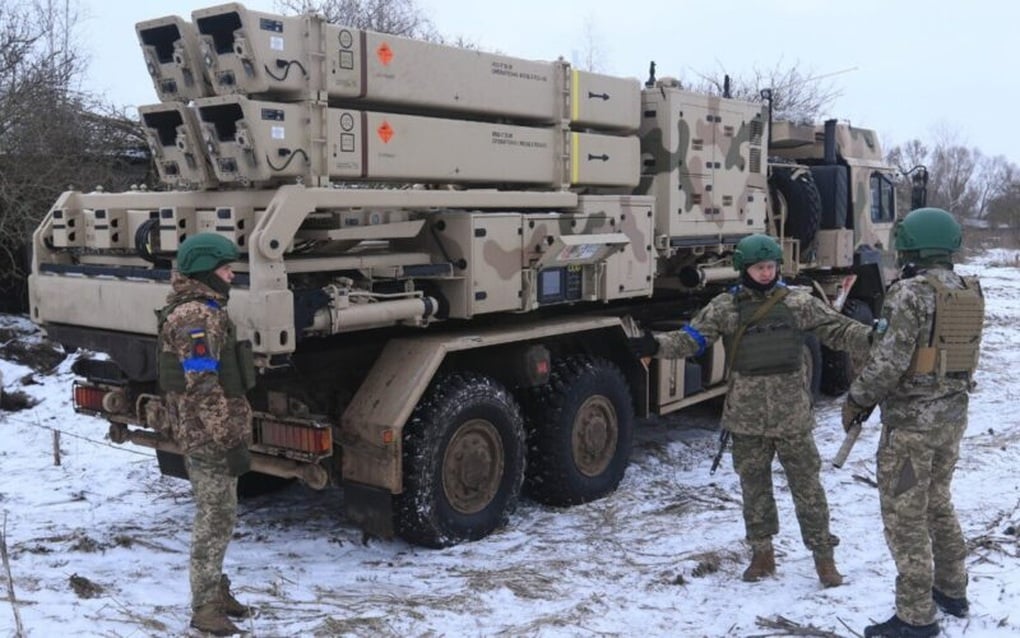
Ukraine's IRIS-T SLM air defense missile system (Photo: Wikipedia).
Ukrainian Defense Ministry official embezzled nearly $40 million
The Ukrainian Security Service (SBU) said Defense Ministry officials conspired with employees of a Ukrainian arms company to embezzle nearly $40 million to buy 100,000 mortar shells. Five people have been charged, including one who was arrested while trying to cross the Ukrainian border. If convicted, they face up to 12 years in prison.
The SBU said the investigation began in August 2022, when officials signed a contract to supply artillery shells worth 1.5 billion hryvnia ($39.6 million) with the Lviv Arsenal arms company.
Employees of the company were supposed to transfer money to an offshore-registered company, which would then deliver the ammunition to Ukraine. However, investigators say the goods were never delivered and instead the money was sent to various accounts in Ukraine and the Balkans.
The money has been confiscated and will be returned to the country's defense budget, Ukraine's prosecutor general said.
Source



![[Photo] Binh Trieu 1 Bridge has been completed, raised by 1.1m, and will open to traffic at the end of November.](https://vphoto.vietnam.vn/thumb/1200x675/vietnam/resource/IMAGE/2025/10/2/a6549e2a3b5848a1ba76a1ded6141fae)






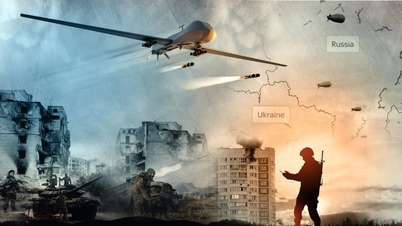

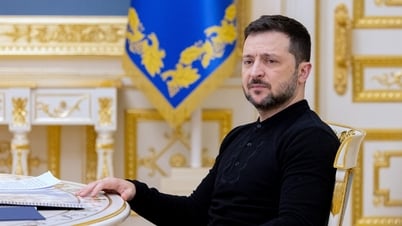

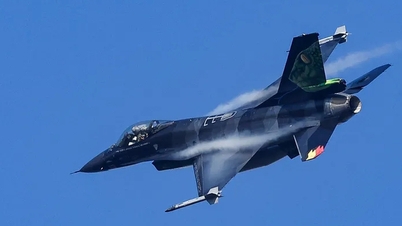
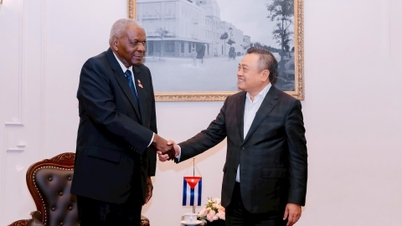

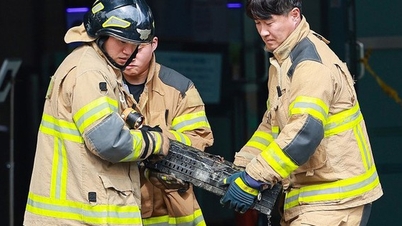

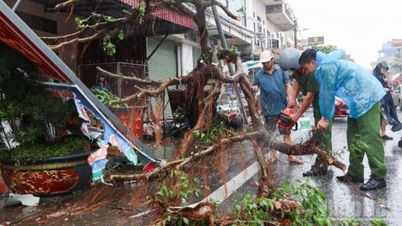



























































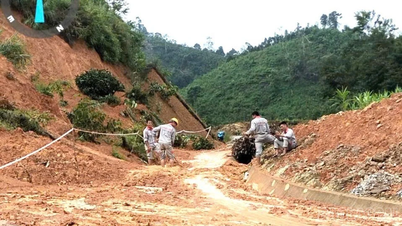





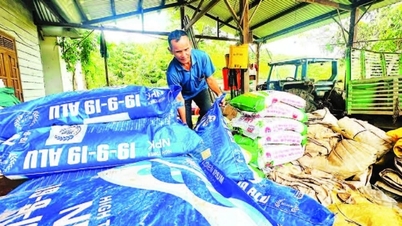















Comment (0)